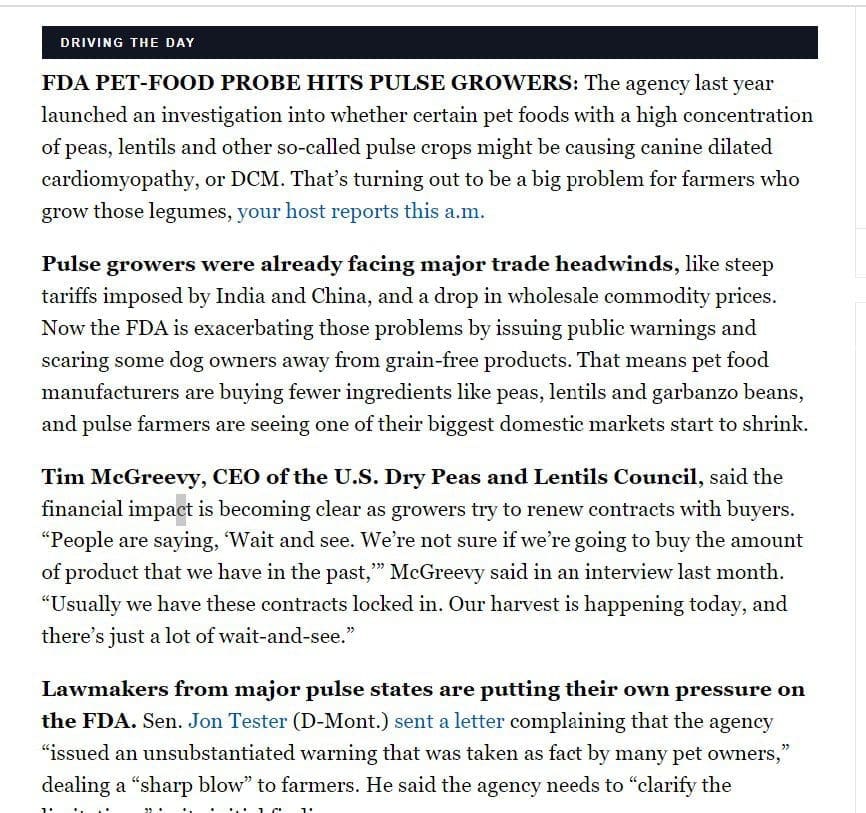Veterinarians, owners angered by farm lobby muzzling of FDA canine heart data as cases rise. Biden admin transparency?
The Canine Review is seeking basic health data from the FDA’s Center for Veterinary Medicine. Our requests began formally in August on 2021, but we have been in this back-and-forth with the CVM since the fall of 2020.
We have asked that the Agency comply with the FOIA Improvement Act of 2016, which requires frequently requested, non-FOIA-exempt records to be published on the relevant agency website and made available to the public proactively. The information requested by veterinary professionals— current number of canine DCM reports received by the Agency— is non-exempt and applies to the Rule of 3 in the 2016 FOIA Improvement Act’s “Rule of 3” (Agencies must “make available for public inspection in an electronic format,” records “that have been requested 3 or more times].”
No individual at the FDA or at the Department of Health and Human Services (HHS) has yet provided any basis for refusing to release canine DCM quantity of reports received, and it has now been more than eighteen months since the FDA last provided such data, saying then that it had received 1100 + reports of canine DCM between January 1, 2014 and July 31, 2020.” Nearly seven months since The Canine Review’s August email exchange with CVM spokeswoman Norris and director Dr. Stephen Solomon, canine DCM reports received by FDA from members of the public beyond 2019 had still not been made available on the FDA website, where the data simply stops on July 31, 2020; worse, the case files FDA has received from members from the public for canine DCM have remained frozen in April of 2019 since the August emails.

$42 billion reasons why FDA leadership may be stonewalling veterinary professionals on potentially life-saving heart data
We want to stress again how uncharacteristic this kind of opaqueness is for the FDA, whose officers are mostly dedicated career scientists. One reason for the atypical FDA resistance could be the result of lobbying from the pulse industry — peas, chickpeas, lentils, and other ingredients that are often substituted for grains and/or proteins in “grain-free” dog foods. These are the same foods the FDA warned the public about in 2018 and again in 2019. Pet food, let’s remember, in the U.S. alone, is already a $42 billion market according to the American Pet Products Association.
We’ve documented the lobbying and industry outcry; the aspects of industry backlash with which you may be less familiar.
Earlier
Below are earlier email exchanges between The Canine Review and FDA officials.

